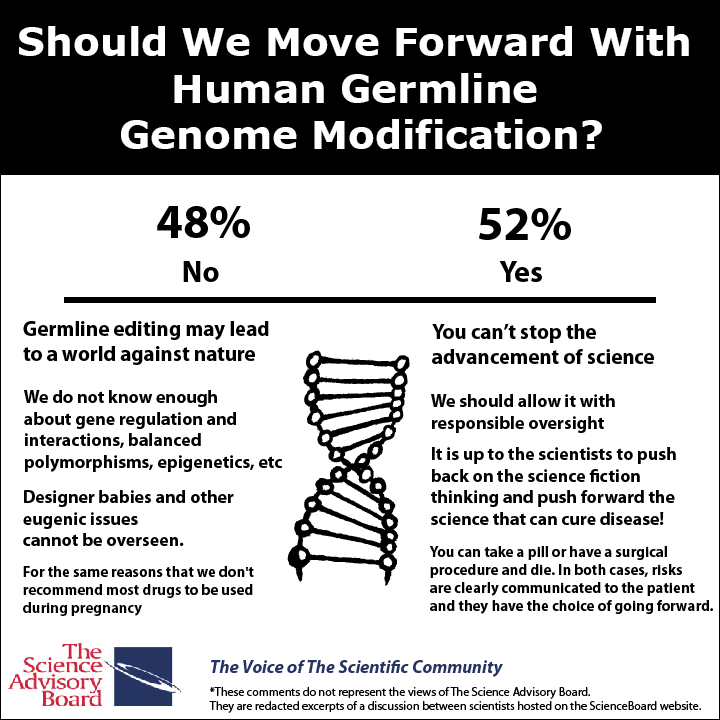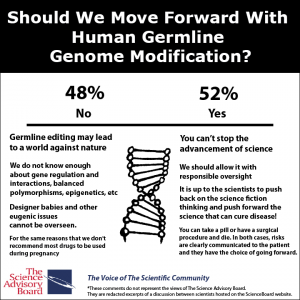CRISPR/Cas9 – What’s Next for Life Science Suppliers?
Few in our industry would disagree with MIT’s Technology Review characterization of CRISPR/Cas9 as “the biggest biotech discovery of the century.” And yesterday’s revelation that Chinese scientists have already edited the genomes of human embryos has touched off yet another ethical debate as well as warnings that the findings show the technology is simply not ready for eradicating disease genes. Before yesterday’s announcement, we polled a group of genomic scientists and asked them if the scientific community should move forward with human germline genome modification. A slight majority said “yes”.
Today we’re asking the question again of a broader group of scientists to see if opinions have changed in the wake of yesterday’s announcement. Many life science suppliers are already racing to get new CRISPR-related products and services to market, and it’s not just kit manufacturers at work in this space. Our team recently returned from the AACR annual meeting and reported that almost everyone was talking about CRISPR. But the business model is different at the different companies. For example, Horizon Discovery is leveraging CRISPR to make cell lines, standards, mice, etc. Sigma is selling oligos and kits, and The Jackson Laboratory is selling mice with engineered immune systems or custom engineered mice developed by CRISPR to name just a few that caught our attention.
This week we’ve collected data from over 400 scientists on their current use of CRISPR/Cas9 (or their plans to adopt the technology) to answer critical questions such as “How big is the market for CRISPR?” “How fast is the market for CRISPR products growing?” and “Which companies with CRISPR products are enjoying first mover advantage?” We’re excited to release the results in a few weeks.







I am interested in who the reliable suppliers are as of this date